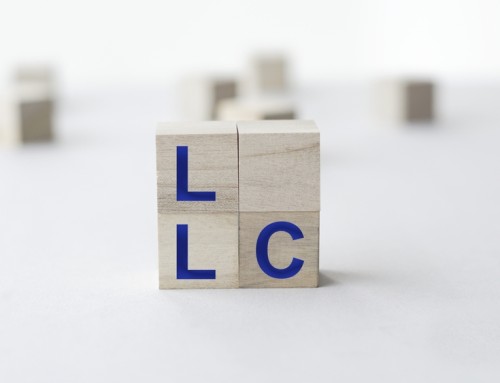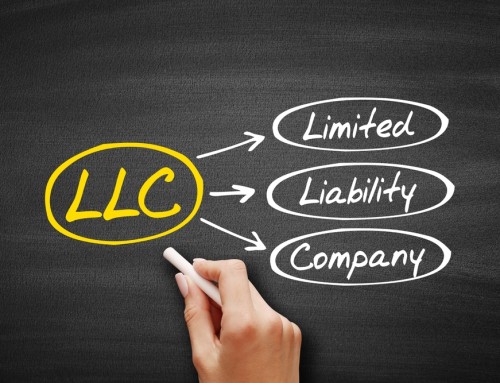Is a Will Enough, or Do You Need a Trust?
A will is an essential part of estate planning, but for many, a trust offers greater benefits. While a will dictates how assets are distributed, it does not avoid probate—a court process that can be costly and time-consuming.
A trust, on the other hand, allows assets to be transferred directly to beneficiaries without probate, ensuring privacy and faster distribution. Without a trust, your estate may be subject to lengthy legal proceedings, and your loved ones could face unnecessary financial burdens and delays.
Understanding the Probate Threshold in Arizona
If you have less than $75,000 in personal property or $100,000 in real estate, your family can skip probate by filing an affidavit. However, for estates above these limits, probate is required, and a personal representative must be appointed to distribute assets.
Probate can take anywhere from a few months to several years, depending on the complexity of your estate and whether disputes arise. This can be particularly challenging if family members disagree about asset distribution, leading to prolonged court battles and mounting legal fees.
A trust can bypass this process entirely, making it a preferred option for those wanting to avoid legal complexities. With a properly structured trust, you can ensure that your assets are distributed smoothly, efficiently, and without public scrutiny.
The Pros and Cons of Revocable vs. Irrevocable Trusts
Not all trusts are the same. The right choice depends on your long-term goals.
🔹 Revocable Trust: Can be updated or changed anytime. Best for those who want control over their estate during their lifetime. This type of trust allows you to modify beneficiaries, add new assets, and adjust terms as your financial situation changes.
🔹 Irrevocable Trust: Once created, it cannot be changed (except under specific conditions). Often used to protect assets from taxes, creditors, and lawsuits. High-net-worth individuals frequently use irrevocable trusts to shield their wealth from potential legal claims and estate taxes.
For high-net-worth families, an irrevocable asset protection trust can secure wealth for future generations while keeping assets shielded from legal claims. Additionally, these trusts can be structured to provide ongoing financial support to heirs without giving them unrestricted access to large sums of money.
The Hidden Risks of Naming a Family Member as Trustee
Many people assume that naming a child or sibling as a trustee is the best option, but this can lead to family disputes and legal challenges. While it may seem like a logical choice, conflicts of interest can arise, and personal relationships may be strained when financial responsibilities are involved.
If a trustee makes poor financial decisions—such as investing trust funds in risky stocks—they can be held personally liable by the beneficiaries. This could result in lawsuits and financial losses for the entire family.
A trustee is responsible for managing trust assets in the best interest of all beneficiaries. If they fail to act prudently, beneficiaries can take legal action to have the trustee removed or held accountable for financial mismanagement.
For large estates, a corporate trustee (like a trust bank) may be the better choice, ensuring assets are professionally managed. Corporate trustees bring experience, impartiality, and financial expertise, which can help prevent conflicts among heirs and ensure compliance with legal obligations.
Trustee Compensation and Accountability
A trustee is entitled to reasonable compensation, but what’s considered “reasonable” varies. If a trustee overpays themselves, beneficiaries can sue for mismanagement.
Arizona law also states that beneficiaries have the right to financial reports on how trust assets are managed. Keeping detailed records and providing annual reports can help prevent disputes. Transparency is crucial, and failing to provide regular updates can lead to accusations of mismanagement or even legal action.
Professional trustees, such as attorneys or financial institutions, are often required to maintain detailed records and follow strict fiduciary guidelines. This level of oversight provides additional protection for beneficiaries and helps ensure that assets are managed in accordance with the trust’s terms.
Avoiding Estate Planning Pitfalls
While setting up an estate plan is essential, there are common mistakes that can undermine its effectiveness. Here are some pitfalls to avoid:
❌ Not Updating Your Plan: Life circumstances change. Marriages, divorces, births, and financial shifts all impact your estate plan. Without updates, unintended heirs could inherit your assets.
❌ Ignoring Tax Implications: Estate and gift taxes can significantly reduce what your beneficiaries receive. Strategic planning can help minimize tax burdens.
❌ Failing to Fund a Trust: Simply creating a trust isn’t enough—you must transfer assets into it. Many people forget to re-title properties and accounts, leaving them subject to probate.
❌ Choosing the Wrong Trustee: A trustee should be financially responsible, impartial, and capable of handling the administrative duties involved in managing the trust.
How Beneficiary Designations Impact Your Estate Plan
Your estate plan isn’t just about wills and trusts—beneficiary designations on retirement accounts, life insurance policies, and payable-on-death accounts override instructions in your will. Failing to review and update these designations can lead to unintended distributions.
For example, if you listed an ex-spouse as the beneficiary of your life insurance policy years ago but never updated it after remarriage, your former spouse would still receive the payout. Regularly reviewing these designations ensures that your assets go to the right people.
The Role of Healthcare Directives in Estate Planning
Estate planning isn’t just about what happens after you pass away—it’s also about protecting yourself if you become incapacitated. A healthcare power of attorney allows someone you trust to make medical decisions on your behalf, while a living will outlines your preferences for end-of-life care.
Without these documents, your loved ones may face difficult legal battles over your medical treatment, and decisions may be made by the court rather than someone who knows your wishes.
Secure Your Future with a Solid Estate Plan
Estate planning is more than just creating a will—it’s about protecting your wealth, minimizing legal complications, and ensuring your wishes are honored. A properly structured estate plan provides peace of mind for you and your loved ones.
Taking the time to plan now can prevent legal disputes, financial losses, and unnecessary stress for your family. Whether you need a basic will, a trust, or a comprehensive estate plan, consulting with an experienced estate planning attorney is the best way to ensure your legacy is preserved.






